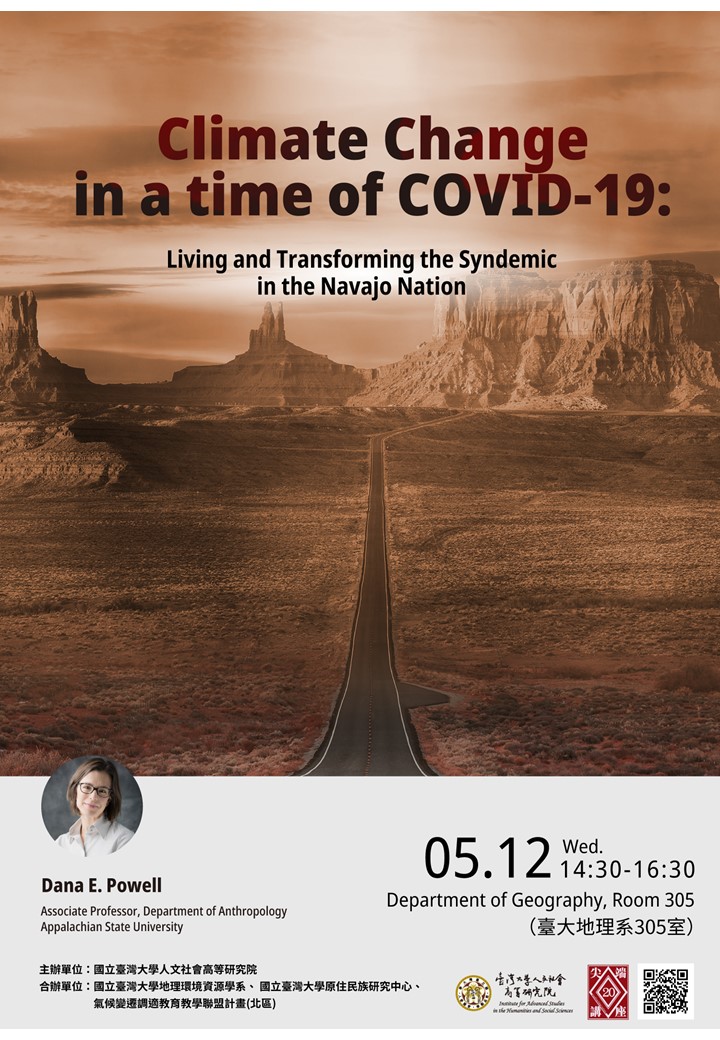
| Wednesday, May 12, 2021, 14:30 - 16:30 | |
| Location 臺大地理系305室 | |
| 講者: Dr. Dana E. Powell | |
|
演講大綱: This presentation examines Indigenous Navajo (Diné) apprehensions of the recent collision of three threats to life: contamination, climate change, COVID-19. Though seemingly separate and distinct, the collision of these three in 2020 revealed a true syndemic: the triple threat was, in fact, an entanglement of historically produced conditions. This syndemic is most apparent through the analytic of water, as a fluvial force that transports life and death in the high desert plateau where the Navajo Nation exists. Extreme drought in the US Southwest in recent years has created precarious conditions for human and animal life as natural water resources rapidly dwindle. At the same time, many of these water resources are contaminated from decades of intensive extraction of energy minerals, primarily uranium for Cold War weapons production and, later, coal and natural gas for power generation for export to the urbanizing greater Southwest. Moreover, one-third of Diné households have no access to potable water, exposing the 2020 mandate to “wash hands” to ward off the virus, as an infrastructural and political problem. This presentation examines Diné apprehensions of the syndemic through intertextual and visual media, Powell’s collaborative ethnographic research, and materials published in the public domain, arguing that the Navajo Nation offers a microcosm for understanding how sovereignty-centered strategies of resilience are required to mitigate and transform a triple threat of peculiar historic conditions. |
|
| 講者簡介:
Dr. Dana E. Powell is a cultural and environmental anthropologist whose work seeks to understand lived experiences of environmental risk, extractive industry, and ongoing processes of colonialism in Native North America and in the Navajo Nation, in particular. Powell’s scholarly interests emerged from her work within feminist and indigenous social movements and those relationships and commitments sustain her ongoing research agenda in energy and environmental humanities. Powell is Associate Professor of Anthropology at Appalachian State University, where she designed and directs the Department’s undergraduate program in Social Practice and Sustainability. |
|
影片來源:臺灣大學地理環境資源學系






